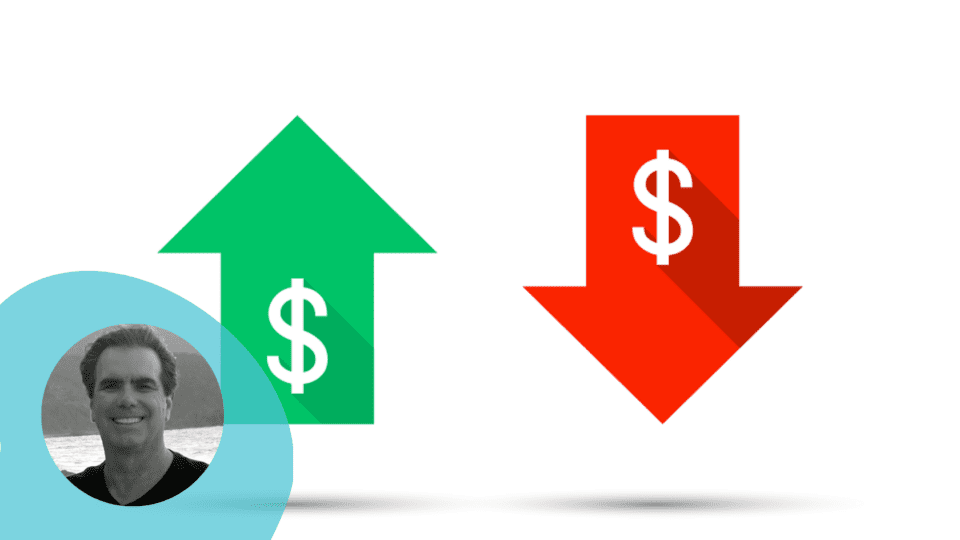If recessions have taught us anything, they expose existing weaknesses, accelerate emerging trends and force businesses to adapt more quickly than planned. However, retail executives shouldn’t wait for a recession to shake up their organization and identify weaknesses.
While nothing can recession-proof a business, studies show that those that prioritize sustainability in their operations could emerge stronger. With data-driven solutions and collaborative partnerships that help combat the environmental impacts of material waste, carbon emissions, energy consumption and scarce resources, retail leaders can increase their business’ efficiency, improve compliance and maintain (or increase) cash flow.
Review these three ways sustainability strategies and data can provide clarity during an economic crisis and give retailers an edge during the recovery phase.
Comprehensive Data Drives Better Decision-Making
Economic crises can put a significant strain on decision-making and make it difficult to determine which initiatives to implement and how to best support relief efforts. But having constant access to the business’ inputs and outputs can help decision-makers make more cost-effective decisions.
Fortunately, waste management and recycling partners are available to help brands leverage data to more accurately forecast market trends, uncover insights on where materials come from and know how to avoid unnecessary inventory. Thus, when a recession hits, their operations can remain efficient and profitable.
Unfortunately, more than half of retailers aren’t collecting enough data to boost their experience, according to a recent CallMiner report. Don’t coast on limited (or no) data. Now is the time to start accessing and understanding it in its totality to make meaningful, timely changes.
Data Avoids Shrinkage/Food Spoilage
Controlling food spoilage and shrinkage is a major consideration during a recession. This is where data analytics and reporting come into play, giving invaluable insights that help retailers:
- Improve Shelf Life: With quality data, a retailer can determine how much of a product is being thrown away and how it measures in the company or market as a whole. Over time, tracking this can help identify adequate inventory levels.
- Optimize Assortment: A retailer’s assortment planning process can make or break a business during the selling season. While assortment teams tend to have considerable expertise in tailoring product assortments, having a clear picture of the impact of their decisions isn’t quite as typical.
- Reimagine or Repurpose Items: Should supply numbers be impacted and sought-after products are impossible to find, retailers can reassess their waste to identify opportunities for repurposing it before it’s tossed. For example, organic food waste could become compost for farms, keeping it endlessly circular.
This can be accomplished by fine-tuning sustainability strategies and investing in data and reporting. With a habit of cost savings and efficiency already in place ahead of a downturn, retailers will be well-positioned when the economy begins to recover.
Sustainability Growth Leads to Business Growth
An old business saying states you should avoid doing what everyone else is doing. While other businesses are concerned about a recession, sustainable retailers can get ahead and look for new opportunities.
With a sustainability strategy in place, retailers can expect:
- Production to ramp up without worrying about product shrinkage and spoilage. Plus, customers demand sustainability practices from their brands.
- To better identify new suppliers that will help save even more money — with a comprehensive view of the business, decision makers will know what works best and who to partner with.
- The ability to separate the essential costs from the ones that should be cut. A sustainability strategy helps create an agile culture, allowing retailers to make smart and quick actions.
Rather than rely on guesswork and suffer the possible consequences, a sustainability investment will make sure money spent leads to impactful, cost-effective results. Creating a well-built plan to combat a recession takes careful preparation. Whether developed independently or with the help of a waste management and recycling partner, sustainability strategies will keep a business thriving in a strong economy and through economic uncertainty.
Ray Hatch has served as President and CEO of Quest Resource Management Group (NASDAQ:QRHC) since February 2016. He’s a senior executive with 25 years of in-depth experience in waste management and food services industries that generated more than a billion dollars in revenue. Quest, a national provider of waste and recycling services, uses deep expertise to build single-source, client-specific solutions to address a wide variety of waste streams and recyclables across multiple industry sectors. Quest also provides information and data that tracks and reports the environmental results of Quest’s services and provides actionable data to improve business operations.




